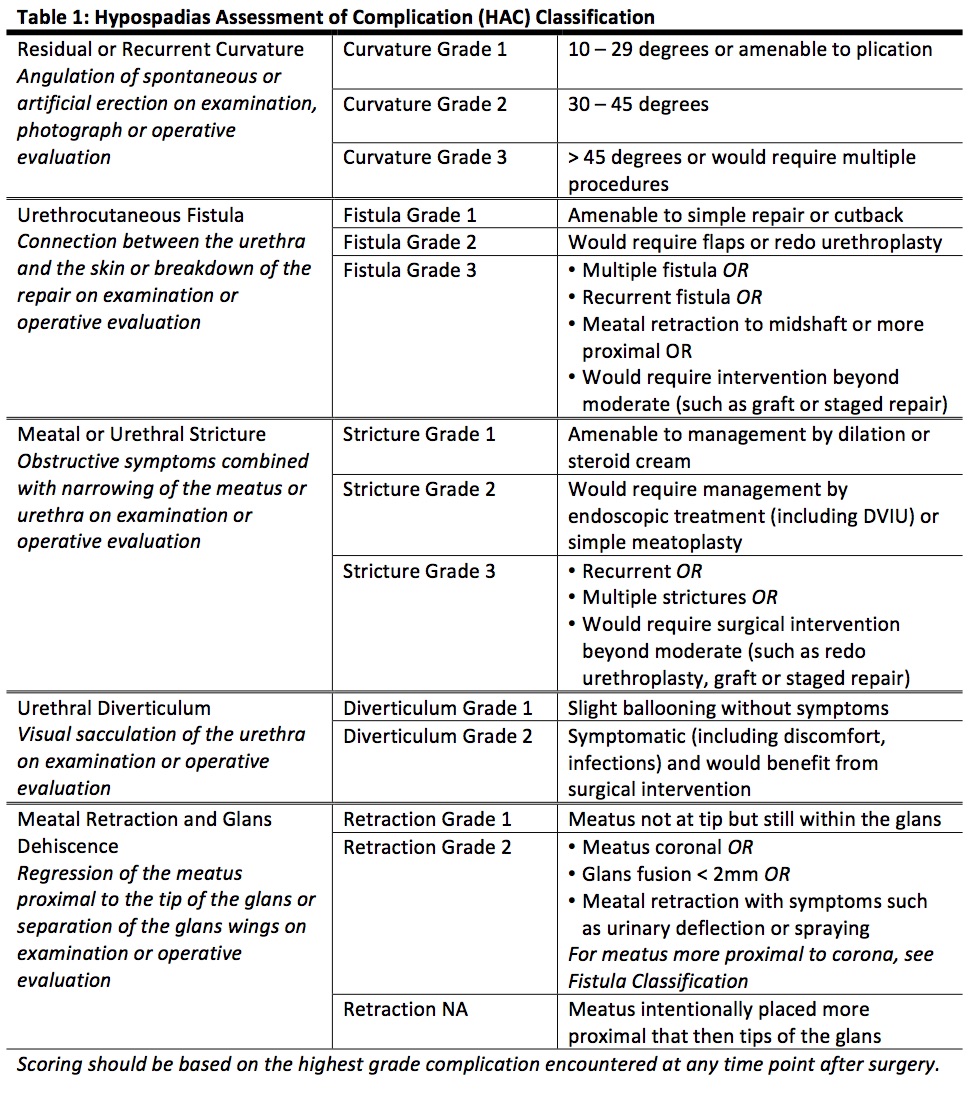Development of a novel Hypospadias Assessment of Complication (HAC) Classification: creation and internal reliability assessment
Courtney K. Rowe, MD, Jennifer J. Ahn, MD, Claudia Berrondo, MD, Alexandria M. Hertz, MD, Shnanon Cannon, MD, Margarett Shnorhavorian, MD, MPH, Paul A. Merguerian, MD.
Seattle Children's Hospital, Seattle, WA, USA.
BACKGROUND: There is no universal standard for reporting long-term complications after hypospadias surgery. Publications often simply list post-operative outcomes, rarely state definitions of complications and rarely offer a measurement of complication severity. Our goal is to create and validate a severity classification system for long-term complications after proximal hypospadias repair. We hypothesize that such a system can be used to standardize reporting of results in the literature. METHODS: A MEDLINE search was performed to identify all published complications after proximal hypospadias surgery. Structured interviews, online surveys and focus groups were conducted with both national experts in hypospadias surgery and regional pediatric urologists. Two working groups were then held with regional pediatric urologists to develop the final Hypospadias Assessment of Complications (HAC) classification system. An IRB exempted retrospective single-institution review was performed of all patients undergoing primary proximal hypospadias repair from 2008- 2010. To determine inter- and intra-rater reliability, we calculated kappa-statistic measure of inter-rater agreement using Stata 12.0.
RESULTS: Based on national and regional pediatric urologist feedback, the decision was made to focus on the six most important complications of hypospadias as ranked by participants: curvature, urethrocutaneous fistula, urethral stricture, urethral diverticulum, meatal stricture and glans dehiscence. During working groups, urethral and meatal stricture were combined into a single category and glans dehiscence was modified to include meatal retraction. The final HAC system descriptions and severity ranking were approved by all regional pediatric urologists (Table 1). There were 28 patients in the retrospective review for internal validation. Only one experienced a diverticulum. Raters included residents, fellows and pediatric urology attendings. 6 raters were used to calculate inter-observer reliability and 3 raters were used to calculate intra-observer reliability after a 1 week washout period. Based on rater feedback, the system was modified and five patients re-rated with slight improvement in Kappa values without changes in interpretation (Table 2). Raters commented on some limitations of this score for retrospective review due to lack of standardized recording of complication severity in clinic notes.
CONCLUSIONS: The newly developed HAC classification system offers the opportunity to standardize reporting of long-term complications after hypospadias surgery. Continued refinement of the system based on user feedback will improve rating reliability, though the ability of a standard system may be limited for retrospective review of notes without standard documentation. Next steps will include performing prospective internal validation with standardized reporting of complications and validating the HAC system on a national level using an online survey.
Acknowledgements: Thank you to the numerous national and regional collaborators who were instrumental in this project. 

Back to 2018 Program




